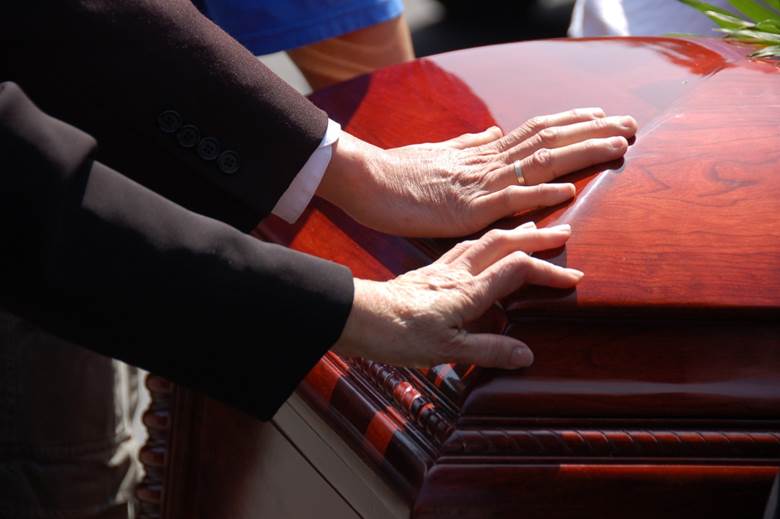In 2020, about 3.39 million mortality rates in America. The death of a loved one is never easy to deal with, but losing a member of your family can make even the strongest among us feel like we can’t move forward.
There is no one-size-fits-all answer for what to do following a family bereavement. Still, we can all follow a few suggestions to help work through the insurmountable wall we face. Let’s look at several of the most common steps we can take following a family death.
Get a Legal Pronouncement
It is essential to obtain a legal pronouncement of death to settle the estate and move forward. The first step is to contact the deceased’s physician or the hospital where they passed away to request a death certificate. You must contact the local police or coroner’s office if the death occurred outside of a medical setting.
Once you have the death certificate, you can then begin the process of settling the estate. It may include opening a probate case, transferring property ownership, and distributing assets to heirs.
If you have problems with the cause of death of a loved one, you can get legal services to have it investigated. You can work with legal experts from lawbuilding.com to know if you have a case of a wrongful death accident.
Tell Friends and Family
It is natural to want to keep your grief to yourself following a bereavement. You may feel you are coping well and do not want to burden others. However, reaching out to friends and family during this difficult time is vital as they can provide support and understanding.
When telling friends and family about a bereavement, be honest about how you feel. Talking about your loved one can help to keep their memory alive. Remember that everyone grieves in their way, and there is no right or wrong way to do it.
Check for Existing Funeral Plans
Knowing if there are existing funeral plans following a family bereavement is essential. If there are no plans, you should consider making funeral arrangements as soon as possible. You will need to consider the type of funeral service you would like and the budget.
You may also need to arrange transport and accommodation for family and friends attending the funeral. Once the funeral arrangements have been made, you should inform family and friends of the details.
Secure the Property of the Deceased
You will need to obtain a death certificate from the registry office. You will need this to notify financial institutions and any other organizations that hold records for the deceased.
You will then need to inform the utility companies of the death. This will ensure that the bills are not sent to the deceased’s address and that any outstanding balances are paid.
Make sure to contact the landlord or mortgage lender to inform them of the death and arrange for the property to be transferred into your name. You also need to ensure that the house is secure and all valuables are accounted for. You may also need to cancel any subscriptions or memberships the deceased had.
If the deceased have pets, ensure that there’s a permanent plan for them. Don’t forget to notify the employer of your loved one if they are still employed. They may have company-wide insurance for employees that have lost their lives.
Find the Will and the Executor
With a deceased family member, the last thing you want to deal with is paperwork. However, it is vital to locate the deceased person’s will and identify the executor. The executor is responsible for carrying out the deceased’s wishes as outlined in the will.
If you are the executor, you must obtain a copy of the death certificate and submit it to the court. You will also need to notify the Internal Revenue Service, the state tax department, and the Social Security Administration. The executor is also responsible for paying any outstanding debts of the deceased.
The will should be filed with the court, and the executor should notify all interested parties, such as creditors, beneficiaries, and family members. Once filed, the executor can begin distributing assets to the beneficiaries.
You will still need a death certificate if you are not the executor. You will also need to notify the Social Security Administration and any other agencies or businesses that worked with the deceased. You can contact the executor to determine how to receive your inheritance.
Meet with a Trust and Estate Attorney
The attorney can help you navigate the probate and estate administration process, which can be complex and confusing. They can also help you understand your rights and responsibilities as an heir or beneficiary and help you make sure that the deceased’s wishes are carried out. Meeting with an attorney early in the process can save you time and stress and help keep the estate administration process running smoothly.
Contact a CPA
A CPA can help you with the financial aspects of the death, such as estate planning and tax issues. They can also help you keep track of expenses and income during this time.
CPAs are a valuable resource and can help you manage your finances during this difficult time. They can also help you plan for the future and ensure that your family is financially responsible.
Swiftly Dealing with a Family Bereavement
After a family member dies, it is normal to feel a range of intense emotions. Family bereavement is a process that is unique to each individual. There are no right or wrong ways to grieve, but there are some helpful coping mechanisms that can make the process a little bit easier.
Some things that may be helpful include talking to others who have experienced a similar loss and spending time in nature. If you are struggling to cope with your grief, it is vital to seek professional help.
Want to learn more? Visit the rest of our blog for the latest insights and trends!























































